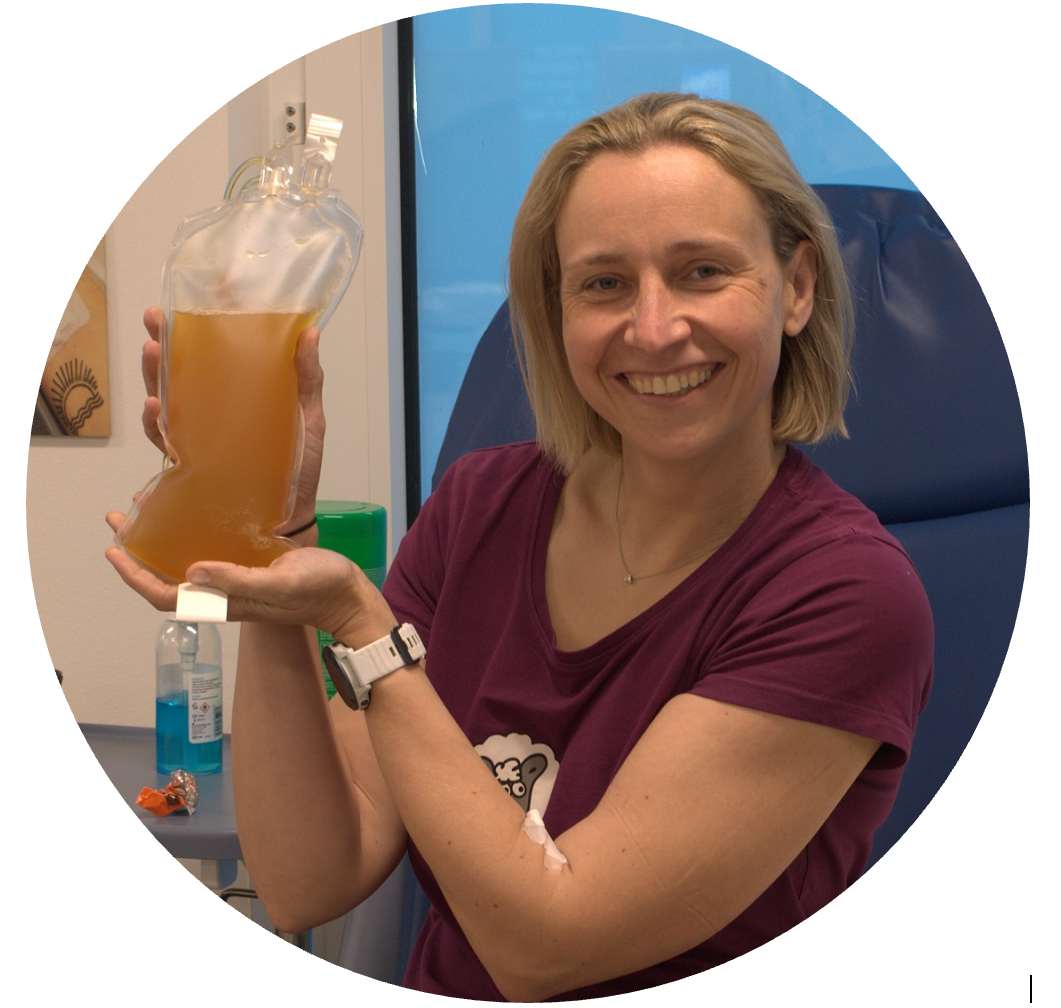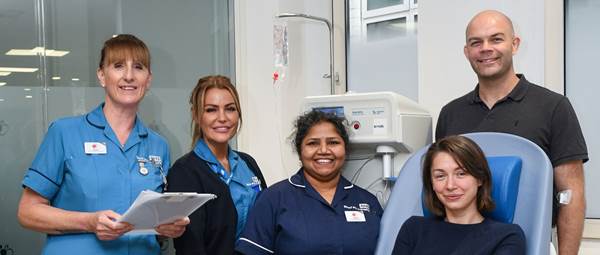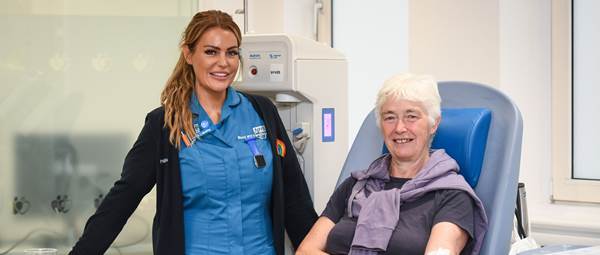What is plasma?
Plasma is the part of your blood that carries platelets, red blood cells and white blood cells around the body.
Plasma makes up approximately 55% of your blood, and contains antibodies, known as immunoglobulins, which fight infection. These antibodies are made into medicines to help people with rare diseases, immune disorders and genetic conditions.
By giving plasma you could help build a person's antibodies, help to heal burns, protect pregnancies, and help babies' hearts to continue to beat.
It takes 155 plasma donations a year to prevent Emma from becoming paralysed from the neck down. She has a rare autoimmune condition called CIDP (Chronic Inflammatory Demyelinating Polyneuropathy) and receives medicine made from plasma every 3 weeks.
21 plasma donations saved the life of baby Aurora when she was 9 months old. She was seriously ill with a condition called Kawasaki disease.
Harley needs plasma medicines every week to keep him healthy and out of hospital. He has a weakened immune system and 92 plasma donations a year are needed to make the medicines he relies on.
It takes 132 plasma donations a year to save Kate's life. She receives plasma medicine every week for an immune system disorder.
(These figures are based on the average annual plasma requirement for each condition.)
Learn more about how plasma is used to save and improve lives.
Until recently England has relied solely on imports of plasma for medicines from other countries. Thanks to plasma donors, England is becoming more self-sufficient at producing plasma treatments. The community of plasma donors is growing and we’re always looking for new donors.
Donating plasma is safe and easy and is similar to donating blood. Find out what happens when you donate plasma.
There are 3 plasma donor centres to choose from. Find your nearest donor centre.
We also collect some plasma by separating it out from blood donations.
I can afford to give my plasma to someone in need, it’s my way of sharing a bit of happiness. The team at the centre are lovely, they feed me chocolate!

Veronika Royle donates plasma in Reading.




